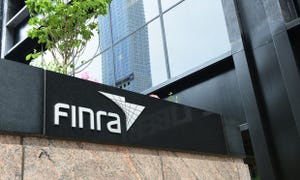Sponsored By
News
SEC building
Regulation & Compliance
Former SEC Crypto Policy Advisor Worries Commission’s Approach Will Harm InvestorsFormer SEC Crypto Advisor Worries Commission’s Approach Will Harm Investors
Corey Frayer, the newly installed director of investor protection at the Consumer Federation of America, also said the commission’s approach could “erode” market trust.













































